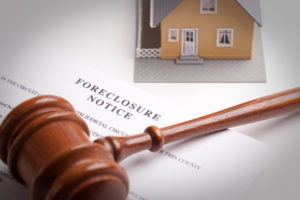 Countless Americans face foreclosure when their lending institutions are unable to collect mortgage payments. In an ideal world, no one would ever face foreclosure—for any reason. But that world does not exist. Banks and other lenders foreclose on homes when owners default on their loans. Although relatively rare, association-initiated foreclosures are occasionally required to recover delinquent assessments.
Countless Americans face foreclosure when their lending institutions are unable to collect mortgage payments. In an ideal world, no one would ever face foreclosure—for any reason. But that world does not exist. Banks and other lenders foreclose on homes when owners default on their loans. Although relatively rare, association-initiated foreclosures are occasionally required to recover delinquent assessments.
It’s important to remember that homeowners choose where to live, and by choosing to live in a community like ours, they accept a legal responsibility to abide by established policies and meet their financial obligations to the association and their neighbors.
Association budgets
Associations rely largely—many exclusively—on homeowner assessments to pay their bills, which can include landscaping, garbage pickup, pools, street lighting and insurance. For condominiums and cooperatives, these costs include building maintenance, utilities and amenities enjoyed by all residents.
You trust our board to develop realistic annual budgets. We base our assumptions on careful cost projections and anticipated income primarily from assessments. Our budgetary obligations do not change when some owners don’t pay their fair share. Common grounds still must be maintained. Garbage must be collected. Utilities and insurance premiums must be paid.
When homeowners are delinquent, their neighbors must make up the difference or services and amenities must be curtailed. The former is an issue of fairness; the latter can lessen the appeal of the community and erode property values.
Liens and foreclosures
When an owner fails to respond to repeated attempts to collect the debt, the association can be left with little choice but to place a lien on the property. The magnitude of this decision requires an approach that is fair, reasonable and consistent and that complies with applicable laws, practices and procedures set forth in the governing documents that guide our decision-making.
We believe homeowners facing foreclosure deserve a reasonable opportunity to appeal to the leaders of the association. Knowing that people occasionally face financial hardship—a lost job, for instance—we will try to work with homeowners to bring their accounts up to date.
Nobody wants to foreclose on a home—not a mortgage banker and certainly not our association. However, the threat of foreclosure is often the only tangible leverage an association has to ensure fairness and shared responsibility. Without this option, many residents would simply choose to default on their obligation to their association and neighbors. How many Americans would pay their taxes if government had no means of enforcement?
With each additional delinquency, an association’s financial position can become increasingly precarious, a situation that is exacerbated in a depressed housing and economic climate.
Placing a lien on property, with the ability to foreclose, is typically enough to get delinquent residents to meet their financial obligations to the community—without removing the owner from his or her home. When that fails, associations turn to the final—and unfortunate—option of foreclosure.
We want you to know that we understand the magnitude of this decision and why it may occasionally be necessary.
Above all else, association leaders are responsible for sustaining the financial viability and stability of the association. As noted earlier, our budgetary obligations do not change when assessments aren’t paid. Services residents expect must be provided; the community must be maintained; bills must be paid; and our investments and property values must be protected.




